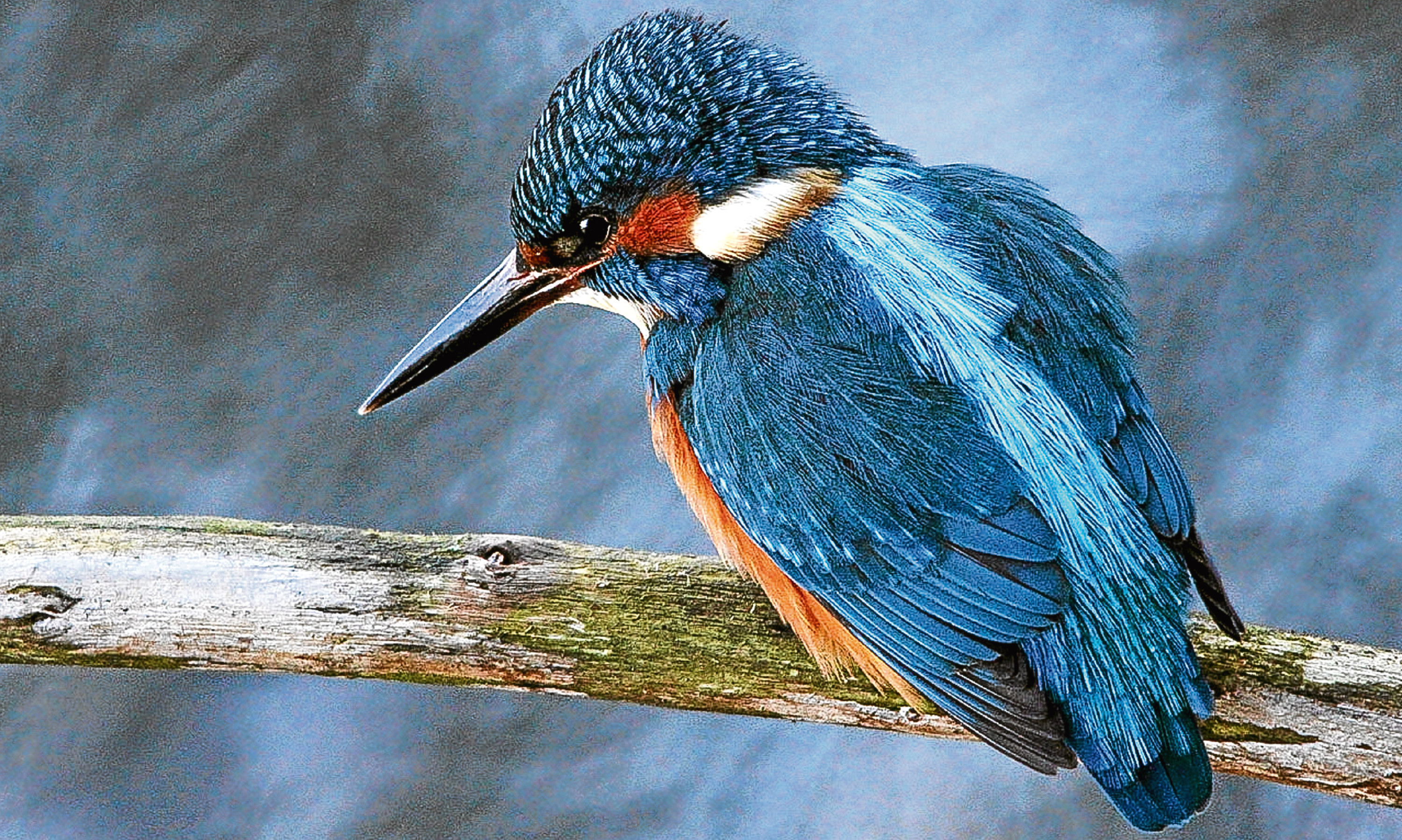It’s wet. By “it” I mean everything. The world, as I know it, is wet.
The air is wet.
The rusty old gate is wet. It will be rustier than ever by tomorrow.
The ankle-deep grass is wet.
The oak trees are wet. Even the patches of relative shelter under the oak canopies are wet, because every now and then a breeze ruffles the leaves and wherever raindrops have gathered into tree-drops among the clustered oak leaves, they spill water in fat wedges.
The little burn that flows slow and dark green-shadowed through dense and untrampled woodland for the entirety of its brief existence is a demented drumskin on which the hissing paradiddle of falling raindrops and tree-drops make merry.
The burn ends at a bend in the river. There, it sees the sky for the first time and sunlight on the right kind of day – but this is not one of these.
A willow tree of 50 summers and five trunks leans out from the far bank towards the burn’s whimpering, whispering arrival. The willow is wet, actually weeping.
It dispenses a constant shower of rainwater from the trailing ends of its down-curving branches.
September has crept up on it and its foliage has begun to thin, which has the effect of speeding up the run-off of rain water in a wide semi-circle. The result is a flimsy curtain of water drops, the frailest waterfall you ever saw.
The mountain is wet. The little I can see of it (about the bottom third) reveals a ribbon of white froth where no water was falling this time last week.
The entire land is agitated with the overwhelming restlessness of water on the move and for the moment I feel like the still centre amid so much wet chaos.
I am wearing head-to-toe waterproofs and wellies, sitting on the riverbank on a small, lightweight, collapsible aluminium and fabric tripod stool.
Half an hour ago, a kingfisher blurred past me going upstream and vanished round the bend in the river.
Why am I still here? Because I have been waiting ever since, in the hope that it might come back.
This is one of those situations which is much more fun than it sounds.
I don’t mind being wet. I’m a Scottish nature writer working in Scotland. It rather comes with the territory.
It’s true that I prefer almost any other time of the year to the worn-out fag-end of an old summer and it is stuffily warm and slightly uncomfortable in the waterproofs.
But I like bends in rivers. I sit here often. I like the perpetual anticipation of the unexpected.
The kingfisher could be back at any moment. It took me by surprise the last time because I was looking upstream and it arrived from behind me, so I only saw the back view. I wouldn’t want to miss the moment when it returns.
Over half an hour more, the rain has eased to a smirr, the sky has lightened, the mountain has shrugged off all but a skull cap of rainclouds.
A dipper has followed the identical midstream flight path of the kingfisher, as if it was the racing line at Monza. It hasn’t come back either. A heron rises from behind the willow, sees me, exhales a breathy rasp of disapproval and ducks back down behind the tree.
I have been passing time by trying to draw the willow. It’s not going too well.
I was never taught to draw – willows or anything else – and it shows. I wonder about incorporating the heron into the drawing but I lack the courage – that and the ability to draw herons.
What I’m hoping for is the kingfisher to come back around the bend on the inside line and perch in the lowest branch of the willow.
Then I can include it in the drawing as an impressionistic smudge with a chunky, tapering beak. Even I can manage that.
A lot of the art of nature writing is waiting for something to turn up. You cannot force the pace.
It is my unshakeable belief that there is no substitute for the kind of stillness that permits you to become part of the landscape, so that many of nature’s tribes treat you as if you don’t exist, or better still, as a part of the landscape. Mostly, that’s when nature reveals its secrets.
On the other hand, there are days like this, when the kingfisher doesn’t turn up again and nothing else does either.
So I watch the river. I watch the light grow brighter in two furrows out in midstream, I watch the patterns of water in the shadow of the willow and I lean closer to the land.
Dougie MacLean wrote: “It’s the land, you cannot own the land, the land owns you.”
It takes a day like this to understand utterly what he meant.
